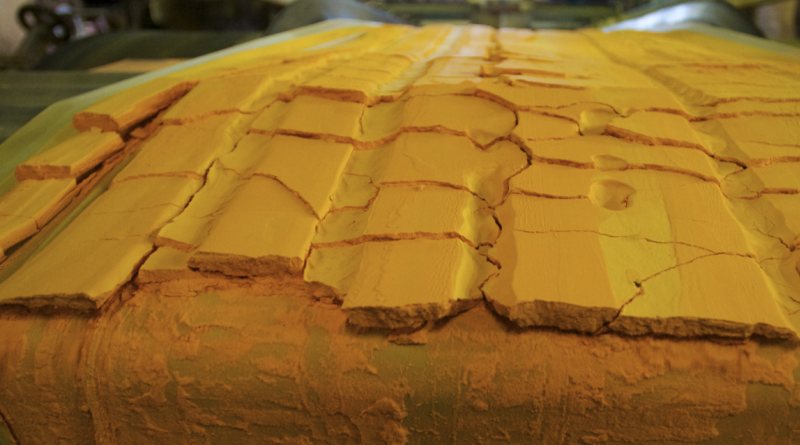Uranium lost and found in Libya: 2.5 tonnes
In early 2023, the Director General of the International Atomic Energy Agency (IAEA), Rafael Grossi, announced that around 2.5 tonnes of uranium ore concentrate had gone missing from a storage site in Libya. This was one of the largest quantities of uranium ore concentrate to ever be misplaced. However, just one day after the announcement, General Khaled Mahjoub of the Libyan National Army claimed that the uranium ore had been found near the warehouse where it had been stored. The IAEA confirmed a week later that most of the uranium ore concentrate had been recovered.
Uranium ore concentrate, also known as “yellowcake,” is a type of uranium powder that is produced when uranium ore is milled and chemically processed. While yellowcake has low radioactivity and is produced by all countries that mine uranium, it can be further processed into enriched uranium, which can be used for nuclear reactors or nuclear weapons. The 2.5 tonnes of missing yellowcake would have been enough for half of a nuclear bomb, if the necessary technology was available.
Despite nuclear experts stating that the Libyan uranium ore concentrate posed no significant security risk, the incident highlighted serious issues with national and global governance structures for managing uranium. Two main issues were identified: firstly, the IAEA lacks resources to effectively monitor uranium ore stockpiles, especially in countries with unstable regimes, and secondly, many African countries struggle to implement nuclear safety and security governance provisions.
Libya has been unstable since Muammar Gaddafi’s regime fell in 2011, leading to a civil war that has destabilized the North African and Sahel regions. Gaddafi had amassed stockpiles of nuclear material and technology and had received help from Abdul Qadeer Khan, a key facilitator for the global smuggling of nuclear material and technology. Although Gaddafi abandoned his weapons program in 2003, there remained 6,400 barrels of uranium ore concentrate in the southern Libyan city of Sabha under the control of an army battalion.
Questions remain about why 2.5 tonnes of uranium went missing and who would want to acquire it. It has been suggested that a group from Chad raided the warehouse in search of conventional weapons or that a black market seller stole the concentrate to show it to a prospective buyer. Despite various mechanisms put in place since the early 2000s to curb the proliferation of weapons of mass destruction by non-state actors, including the African Nuclear-Weapon-Free-Zone Treaty, the situation in Libya highlights the need for stable and competent governments to fill the nuclear governance vacuum. African countries should also invest in regional nonproliferation mechanisms, such as the African Commission on Nuclear Energy, as a complementary confidence-building measure.



